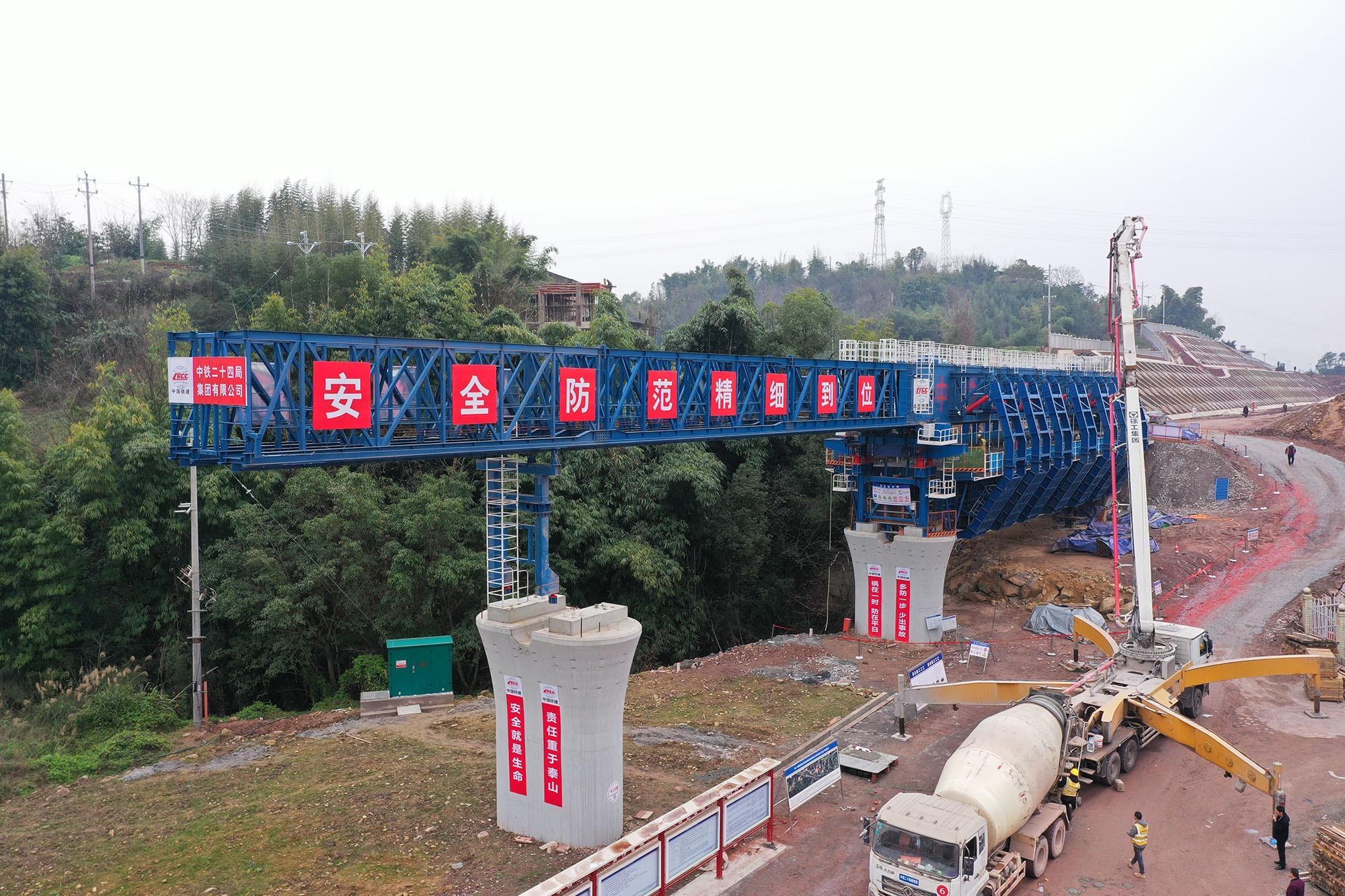Moves also target boosting economic recovery momentum, livelihoods
 An image shows the construction site of a bridge on the Xi'an-Chongqing High-speed Railway in Chongqing last week. The railway is being built by State builders including China Railway 24th Bureau Group Corp. (PROVIDED TO CHINA DAILY)
An image shows the construction site of a bridge on the Xi'an-Chongqing High-speed Railway in Chongqing last week. The railway is being built by State builders including China Railway 24th Bureau Group Corp. (PROVIDED TO CHINA DAILY)
The Ministry of Finance will moderately step up proactive fiscal policy adjustments this year while improving fiscal governance efficiency and effectiveness in order to expand domestic demand and boost economic recovery momentum, Wang Dongwei, vice-minister of finance, said on Thursday.
Experts said China can increase central government spending and enhance policy outcomes, with a focus on promoting national agendas, including sci-tech innovation.
Wang said at a news conference in Beijing that China will maintain an "appropriate level" of fiscal expenditure this year to send positive signals, and properly coordinate government investment scales to amplify investment dividends.
"We will strive to expand domestic demand through effects regarding two aspects — investment and consumption," Wang said, adding that the ministry will scale up effective investment and stimulate consumption.
The ministry will make good use of funds raised from Treasury bonds, issue a certain scale of local government special-purpose bonds and appropriately increase the scale of central government budget-based investment this year, he said.
Focusing on stimulating buying sentiment, the ministry will further promote new consumption growth points in sectors like culture, tourism, education and eldercare, he said, adding that social security, transfer payments and other adjustments will also be strengthened and incomes of urban and rural residents will be raised in order to improve people's willingness and capacity to consume.
The vice-minister stressed that the ministry will adopt more powerful and effective measures this year to promote construction of a modern industrial system led by sci-tech innovation, and vigorously develop new productivity drivers.
Supporting the accelerated construction of a modern industrial system will be a key task for the ministry this year, he said, adding it will make good use of policy tools, such as fiscal subsidies, loan interest subsidies and tax incentives to focus on key industrial chains, such as new-generation information technology and integrated circuits, and remedy bottlenecks associated with basic products, core technologies and key software.
The ministry will also give full play to the functions of government investment funds, such as those for manufacturing upgrading and advanced manufacturing promotion, to attract social capital to invest in key areas of the manufacturing sector in a market-based manner in order to cultivate emerging sectors, he said.
The vice-minister said the country will increase transfer payments to less privileged regions to secure people's basic livelihoods, public sector salaries and government operations at the grassroots level. It will also optimize tax and fee policies by making them more accurate, target-oriented and effective.
In addition, the country will continue to improve fiscal policy quality and efficiency through more efforts on six major fronts — practicing governmental frugality, optimizing fiscal expenditure structure, enhancing performance management, enforcing financial discipline, enhancing fiscal sustainability and strengthening policy coordination, he added.
The ministry said China's fiscal revenue rose 6.4 percent year-on-year to over 21 trillion yuan ($2.92 trillion) in 2023, while fiscal expenditure grew by 5.4 percent on a yearly basis to 27.46 trillion yuan.
Fiscal spending on science and technology increased 7.9 percent last year. It expanded from 832.7 billion yuan in 2018 to around 1.06 trillion yuan in 2023, with an average annual growth of 6.4 percent.
Chang Haizhong, executive director of corporates at rating agency Fitch Bohua, said he expects China's fiscal policy in 2024 will be more positively expansionary, with increased expenditures tilted toward major national strategic projects and people's livelihoods.
Feng Lin, a senior analyst at Golden Credit Ratings, said that to balance promoting growth and preventing risks, local infrastructure investment this year will likely rely largely on local government special-purpose bond funds, central fiscal support and policy-based financial instruments.


